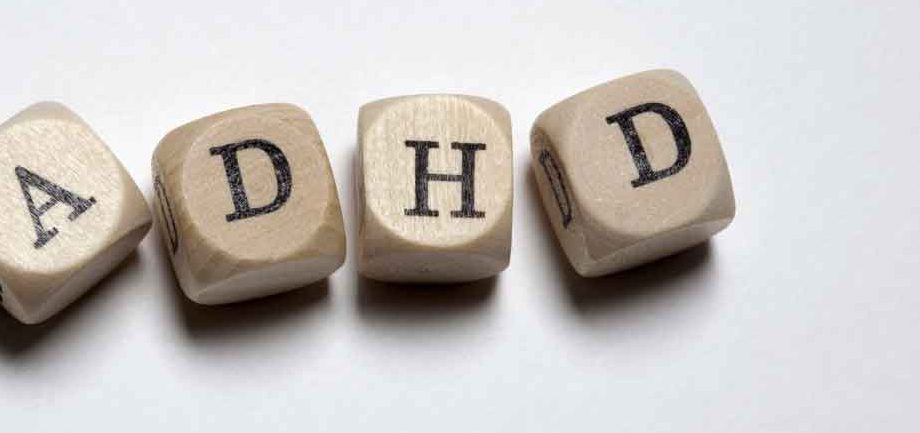Adults Can Have Attention Deficit Hyperactive Disorder

Despite the focus on attention deficit hyperactivity disorder in children, ADHD also affects adults. But you can learn new habits to take on the condition.
Are you often restless, distracted, and have problems concentrating? Have you experienced challenges with organization throughout your life? Do you feel like you have too much energy sometimes and fidget, interrupt other people, and have trouble falling asleep at night?
If those symptoms show up in various areas of your life and cause problems, you may have undiagnosed attention deficit hyperactivity disorder (ADHD).
YOU MIGHT ALSO LIKE: How to Work Around a Procrastination Habit
People used to think ADHD affected only kids. But it can affect adults, too. About 4.4 percent of U.S. adults have ADHD, according to the National Institute of Mental Health (NIMH). It impacts both sexes to various degrees, but men are more likely than women to have ADHD symptoms.
Many successful adults have learned to compensate for their restlessness and distractibility, with a personality that may appear exciting, adventurous, stimulating to others, and creative.
On the other hand, ADHD in adults can show up as insomnia, dominating conversation, procrastination, overspending, infidelity out of boredom, and a fiery temper. You may have a milder case and simply appear hyped-up, checking your smartphone too compulsively.
No one is always attentive, patient, and composed, but if people around you complain that you’re jittery or scattered — and you’re having problems managing time and responsibilities — you might consider a root cause.
ADHD can run in families, and sometimes adults seek help only after a son or daughter is diagnosed. While many studies suggest genes play a significant role in many cases of ADHD, researchers are not sure what causes ADHD.
The condition likely results from a combination of factors, according to the NIMH. Researchers are investigating whether nutrition, brain injuries, and social environments may play a role in ADHD, along with genetics.
Symptoms usually develop before the age of 12. Think back. Do you recall academic problems or being especially rambunctious? It’s possible you’ve forgotten, so you might ask people who knew you as a child.
Even if you recognize you have some symptoms that sound like ADHD, don’t try to diagnose yourself. Stress, other mental health conditions, substance misuse, and some health conditions can result in symptoms that resemble signs of ADHD. That’s why it’s important to have thorough physical and mental health evaluations to determine the cause of your problems and identify effective treatments.
During this evaluation, your healthcare provider or mental health professional will examine many factors, including your medical history, and look for at least five of the following symptoms:
- You fail to give close attention to details or make careless mistakes.
- You don’t seem to listen when spoken to directly.
- You get side-tracked and fail to complete tasks.
- You have trouble organizing tasks and activities.
- You avoid, dislike, or are reluctant to do tasks that require mental effort over a long period of time.
- You lose things you need, like your keys or cellphone.
- You are easily or frequently distracted.
A doctor will also look for at least five of the following symptoms related to hyperactivity:
- You fidget, tap your hands or feet, or squirm in your seat.
- You leave the seat when you’re expected to sit still, for example, getting up during meetings.
- You feel restless.
- You talk a great deal.
- You blurt out an answer before a question has been completed.
- You have trouble waiting your turn.
- You interrupt or intrude on others, butting into a conversation or activity.
Some people with ADHD are misdiagnosed as suffering from bipolar disorder or anxiety.
“By the time most adults get the correct diagnosis, they have seen 2.3 doctors and been through 6.6 failed courses of antidepressant or mood-stabilizing medications,” writes William Dodson, MD, a specialist in ADHD.
People with ADHD nervous systems are passionate and tend to overreact to rejection, sometimes with big mood swings. Perhaps you’ve complained of anxiety to your doctor.
You might “equate anxiety with the lifelong experience of never slowing down enough to have a moment of peace, always thinking about five things at once, being so energetic that you have never been able to sit through a movie, and being unable to shut this hyperarousal off so you can sleep,” Dodson explains.
Anxiety is fear. Are you afraid or hyper?
Stimulants are the most common type of medication used to treat ADHD. Research shows such medications can be highly effective. Like all medications, they can have side effects and require an individual’s healthcare provider to monitor how the person with ADHD may be reacting to the medication.
That is crucial when adults take other prescription drugs for common health problems, like hypertension, diabetes, and depression. They may interact with stimulants.
Nonstimulant medications are also available for ADHD. Healthcare providers may sometimes prescribe antidepressants to treat adults with ADHD, too, although the Food and Drug Administration has not approved such medications specifically for ADHD.
While medication can help you focus, you can change your habits. You may have come to rely on last-minute surges of energy. Instead, consider using systems to keep you on track, like beeping watches or checklists.
Edward Hallowell, MD, who suffers from ADHD himself, offers tips that include consciously limiting distractions, such as shutting off your TV and putting away your phone when you’re talking to your partner or kids. Slow your racing brain by taking up yoga or meditation. Schedule time to plan the next day, allowing for enough time to get to appointments. Cut out lower-priority tasks, delegating and learning to say no politely.
Updated:
May 02, 2023
Reviewed By:
Christopher Nystuen, MD, MBA and Janet O'Dell, RN